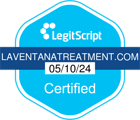
Benefits of Residential Addiction Treatment
Residential addiction treatment offers a structured environment where individuals can fully focus on recovery without the distractions and triggers present in daily life. This immersive approach allows clients to build a strong foundation for long-term sobriety. By residing in a treatment facility, individuals have access to a variety of therapies and support systems that are crucial for effective recovery.
Engaging in residential treatment provides an opportunity for individuals to break away from unhealthy habits and interactions. The supportive community within the facility fosters a sense of camaraderie and understanding. These connections can be pivotal in helping clients feel less isolated and more motivated to change.
The comprehensive care offered in residential facilities includes medical supervision, which is particularly important during the detox phase. This ensures clients' safety while they navigate the difficult withdrawal process, setting them up for success in subsequent recovery stages.
Importance of Environment in Recovery
The environment plays a critical role in recovery from addiction. A calm and supportive setting, like that found in Thousand Oaks, aids in minimizing external stressors. Residential treatment centers in this area often provide serene surroundings that promote relaxation and introspection.
Being situated in a peaceful environment allows clients to better focus on their treatment objectives. The natural beauty of Thousand Oaks offers a tranquil backdrop, facilitating mindfulness practices like meditation and yoga, which are integral components of many treatment programs.
Personalized Treatment Plans
One of the key features of effective residential addiction treatment programs is the development of personalized treatment plans. These plans are tailored to the specific needs of each individual, recognizing that no two paths to recovery are the same.
Professionals in Thousand Oaks utilize a combination of traditional and innovative therapies to address the unique challenges faced by each client. This may include cognitive behavioral therapy, music therapy, and family participation, all aimed at providing comprehensive support.
Personalized treatment ensures that underlying issues, such as trauma or co-occurring mental health conditions, are addressed, leading to more successful recovery outcomes.
Role of Family in Recovery
The involvement of family in the recovery process is a crucial element of many residential treatment programs. In Thousand Oaks, centers often encourage family participation to help rebuild trust and strengthen communication.
By involving family members, treatment centers not only provide support for the individual in recovery but also offer education and resources to loved ones. This holistic approach helps families understand addiction and learn how to support their loved one effectively.
Furthermore, family therapy sessions enable the resolution of conflicts and the healing of relationships, which can be pivotal in maintaining long-term sobriety.
Supportive family environments contribute significantly to the success of the individual's recovery journey. Such involvement helps create a network of accountability and encouragement.
Integrating Music Therapy
Music therapy has emerged as a powerful tool in the world of addiction treatment. In Thousand Oaks, facilities incorporate music therapy as part of their comprehensive care to aid in emotional expression and healing.
Music therapy sessions enable clients to process emotions that may be difficult to articulate verbally. Through creating and listening to music, individuals can confront feelings and memories that contribute to their addiction.
Detoxification Process
The detoxification process is a critical component of residential addiction treatment. This phase involves the removal of toxic substances from the body, often necessitating medical supervision.
In Thousand Oaks, residential facilities provide a safe and controlled environment for detox. Medical professionals are on hand to manage withdrawal symptoms, ensuring the comfort and safety of clients as they transition into sobriety.
Transitioning from Residential to Outpatient Care
Successful recovery often involves a seamless transition from residential care to outpatient treatment. This step-down approach helps individuals maintain the progress made during the intensive residential phase.
Outpatient programs in Thousand Oaks offer flexibility, allowing clients to reintegrate into daily life while continuing to receive support and therapy. This continuity of care is essential for sustaining recovery.
Holistic Treatment Approaches
Holistic treatment approaches are at the forefront of residential addiction treatment in Thousand Oaks. These methods address not only the physical aspects of addiction but also the psychological and spiritual needs of clients.
By incorporating practices such as yoga, meditation, and mindfulness, treatment centers provide clients with tools to manage stress and prevent relapse. These practices promote overall wellness, which is a key element in the journey toward recovery.
Community Support and Alumni Programs
Community support is an invaluable resource for individuals recovering from addiction. Residential treatment centers in Thousand Oaks often facilitate a sense of community through alumni programs and ongoing support groups.
These programs offer a platform for individuals to share experiences and advice, fostering a network of mutual support. The sense of belonging can significantly bolster individuals' commitment to maintaining sobriety.
Life Skills and Education
Education is an integral part of residential addiction treatment. Centers in Thousand Oaks emphasize the development of life skills to prepare clients for life post-treatment.
Workshops and seminars often cover a range of topics, from relapse prevention to financial management, providing clients with the knowledge and skills necessary to navigate the challenges of a sober lifestyle.
By equipping individuals with these skills, treatment centers empower them to take control of their lives and sustain their recovery outside of the facility.

What makes residential addiction treatment in Thousand Oaks different from other approaches?
Residential addiction treatment in Thousand Oaks, especially at centers like La Ventana, offers a unique blend of structured environment and comprehensive care. The serenity of Thousand Oaks provides a peaceful setting that helps minimize stressors, allowing clients to focus solely on recovery. Unlike outpatient programs, residential treatment allows individuals to reside in a safe space away from external triggers and distractions. This environment is crucial for those needing intense support during the early stages of recovery. The tailored treatment plans, which include therapies like yoga and music therapy, ensure each client's specific needs are met, providing a well-rounded approach to overcoming addiction. Have you considered how the combination of environment and personalized care might influence someone's recovery journey?
How does La Ventana address the detoxification process for new clients?
At La Ventana, the detoxification process is handled with utmost care and professionalism. The facility provides a medically supervised environment to ensure the safety and comfort of clients as they navigate withdrawal. Experienced medical professionals are available to manage any physical symptoms, reducing the risk of complications. This support is integral for individuals who may have severe withdrawal symptoms or concurrent medical conditions. Clients often express relief in knowing they are monitored 24/7, making the initial step of detox much less daunting. Have you ever wondered what specific medical support is available during detox, and how that might affect your choice of treatment center?
What role does family play in the recovery process at La Ventana?
La Ventana recognizes the vital role family plays in recovery, offering a family immersion program that promotes healing and understanding. Family therapy sessions are designed to improve communication and resolve conflicts, which is crucial for rebuilding trust. This approach not only supports the individual in treatment but educates family members on how to provide ongoing support. The program also aids in breaking cycles of enabling behavior and fostering a supportive network, which many clients find empowering for long-term recovery. How has family involvement in recovery influenced your perspective or decision-making regarding treatment?
Can you explain how music therapy is integrated into addiction treatment at La Ventana?
Music therapy is an innovative aspect of La Ventana's treatment program. It provides clients with an outlet for expressing emotions that may be difficult to articulate verbally. Through activities such as songwriting and listening sessions, clients can explore and process complex feelings that contribute to their addiction. This method has shown to be effective in reducing anxiety and depression, aiding in emotional healing. The transformative power of music helps create breakthroughs in therapy, leading to personal growth and insight. Have you experienced how music can impact your mood or emotional state, and how might this play a role in addiction recovery?
What are the benefits of transitioning from residential treatment to outpatient care at La Ventana?
Transitioning from residential treatment to outpatient care is a structured process at La Ventana, ensuring continuity in recovery. This step-down approach allows clients to gradually reintegrate into their daily lives while maintaining access to therapeutic support. The flexibility of outpatient programs helps individuals apply coping strategies in real-world settings, reinforcing the skills learned during residential care. The ongoing support and check-ins prevent relapse and provide a sense of accountability. The smooth transition often makes clients feel more confident and prepared to face challenges outside the treatment environment. How important do you think it is to have a structured transition plan for maintaining sobriety?
In what ways do holistic treatment approaches at La Ventana benefit clients in addiction recovery?
Holistic treatment approaches at La Ventana encompass not just physical recovery but also emotional, mental, and spiritual well-being. Incorporating practices like yoga and mindfulness, clients learn techniques to manage stress and prevent relapse. These methods promote a sense of peace and balance, enhancing overall wellness. The holistic perspective addresses the root causes of addiction, providing more profound healing opportunities. Many clients report feeling more centered and equipped to handle life's challenges after engaging in holistic practices. Have you considered how a holistic approach might change the effectiveness of addiction treatment for you or a loved one?






 Treatment Plans Customized For
You
Treatment Plans Customized For
You  Our Innovative Approach
Our Innovative Approach Our Signature Integrated
Treatment Program
Our Signature Integrated
Treatment Program We Treat All of Our Clients
Like Family
We Treat All of Our Clients
Like Family




















